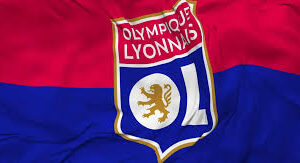The FIFA World Cup is more than just a football tournament; it is a global phenomenon that transcends sport, culture, and borders. Held every four years, the World Cup brings together nations from every corner of the globe to compete for the most prestigious trophy in football. It is a celebration of skill, passion, and unity, capturing the hearts of billions of fans worldwide. From VM88 humble beginnings in 1930 to its current status as the most-watched sporting event on the planet, the FIFA World Cup has become a symbol of hope, pride, and shared humanity.
The Origins and Evolution of the World Cup
The idea of a global football tournament was first proposed by Jules Rimet, the president of FIFA (Fédération Internationale de Football Association), in the early 20th century. Rimet envisioned a competition that would bring nations together through the universal language of football. The inaugural FIFA World Cup took place in 1930 in Uruguay, with 13 teams participating. Uruguay emerged as the first champions, defeating Argentina in the final.

Since then, the World Cup has grown exponentially in size and significance. The tournament expanded to include more teams, and by the 21st century, it featured 32 nations competing in a month-long festival of football. The World Cup has also evolved in terms of organization, technology, and global reach. Advances in broadcasting have made it possible for fans around the world to watch the matches live, while innovations like goal-line technology and VAR (Video Assistant Referee) have improved the fairness and accuracy of the game.
The Magic of the World Cup
What sets the FIFA World Cup apart from other sporting events is its ability to unite people across cultures, languages, and ideologies. For a month every four years, the world comes together to celebrate the beautiful game. Streets are painted in national colors, fans gather in stadiums and public squares, and families and friends bond over their shared love of football. The World Cup is not just about the players on the field; it is about the millions of fans who live and breathe every moment of the tournament.
The World Cup also provides a platform for underdog stories and unforgettable moments. From Diego Maradona’s “Hand of God” goal in 1986 to Zinedine Zidane’s headbutt in the 2006 final, the tournament has produced countless memories that are etched into football history. It is a stage where legends are born, and heroes are made. Players like Pelé, Maradona, Ronaldo, and Messi have cemented their legacies on the World Cup stage, inspiring generations of aspiring footballers.
The Economic and Cultural Impact
The FIFA World Cup is not just a sporting event; it is also a major economic and cultural force. Hosting the tournament is a significant undertaking that requires massive investments in infrastructure, stadiums, and transportation. While the costs can be substantial, the potential benefits are equally enormous. The World Cup boosts tourism, creates jobs, and stimulates local economies. It also leaves a lasting legacy, with state-of-the-art stadiums and improved infrastructure that benefit the host nation long after the tournament ends.
Culturally, the World Cup has a profound impact on the host country and the participating nations. It fosters a sense of national pride and identity, as fans rally behind their teams and celebrate their achievements. The tournament also promotes cultural exchange, as people from different backgrounds come together to share their love of football. The World Cup anthem, mascot, and official merchandise become symbols of unity and celebration, further enhancing the tournament’s cultural significance.
Memorable World Cup Moments
Over the years, the FIFA World Cup has produced countless memorable moments that have captivated fans and defined the tournament’s legacy. Some of the most iconic moments include:
- Brazil’s Dominance (1958-1970): Led by the legendary Pelé, Brazil won three World Cups in 12 years, establishing themselves as the most successful team in football history. Their 1970 team, often regarded as the greatest of all time, showcased the beauty of “jogo bonito” (the beautiful game).
- Maradona’s “Goal of the Century” (1986): In a quarter-final match against England, Diego Maradona dribbled past five players to score one of the greatest goals in World Cup history. The goal, along with his controversial “Hand of God” goal earlier in the match, cemented Maradona’s status as a football icon.
- Zidane’s Headbutt (2006): In his final match before retirement, Zinedine Zidane stunned the world by headbutting Italy’s Marco Materazzi in the World Cup final. Despite the incident, Zidane’s legacy as one of the greatest players of all time remains intact.
- Germany’s 7-1 Victory over Brazil (2014): In one of the most shocking results in World Cup history, Germany defeated host nation Brazil 7-1 in the semi-finals. The match, played in front of a stunned Brazilian crowd, is remembered as one of the most dramatic moments in tournament history.
The Future of the World Cup
As the FIFA World Cup continues to grow, it faces new challenges and opportunities. The 2022 tournament in Qatar marked the first time the World Cup was held in the Middle East, highlighting the tournament’s ability to bring football to new regions. The 2026 World Cup, which will be co-hosted by the United States, Canada, and Mexico, will feature an expanded format with 48 teams, further increasing the tournament’s global reach.
Despite controversies surrounding issues like corruption, human rights, and environmental impact, the World Cup remains a beacon of hope and unity. It is a reminder of the power of sport to bring people together, transcend differences, and inspire greatness.
Conclusion
The FIFA World Cup is more than just a football tournament; it is a celebration of humanity’s shared love for the beautiful game. It is a stage where dreams are realized, legends are born, and nations come together in a spirit of unity and competition. From its humble beginnings in 1930 to its current status as a global phenomenon, the World Cup has captured the hearts of billions and left an indelible mark on the world.
As we look forward to future tournaments, the FIFA World Cup will continue to inspire, unite, and entertain. It is a testament to the enduring power of sport and a reminder that, no matter our differences, we are all part of one global community. Whether you’re a die-hard football fan or a casual observer, the World Cup is an event that transcends sport and reminds us of the beauty of shared passion and collective joy.





